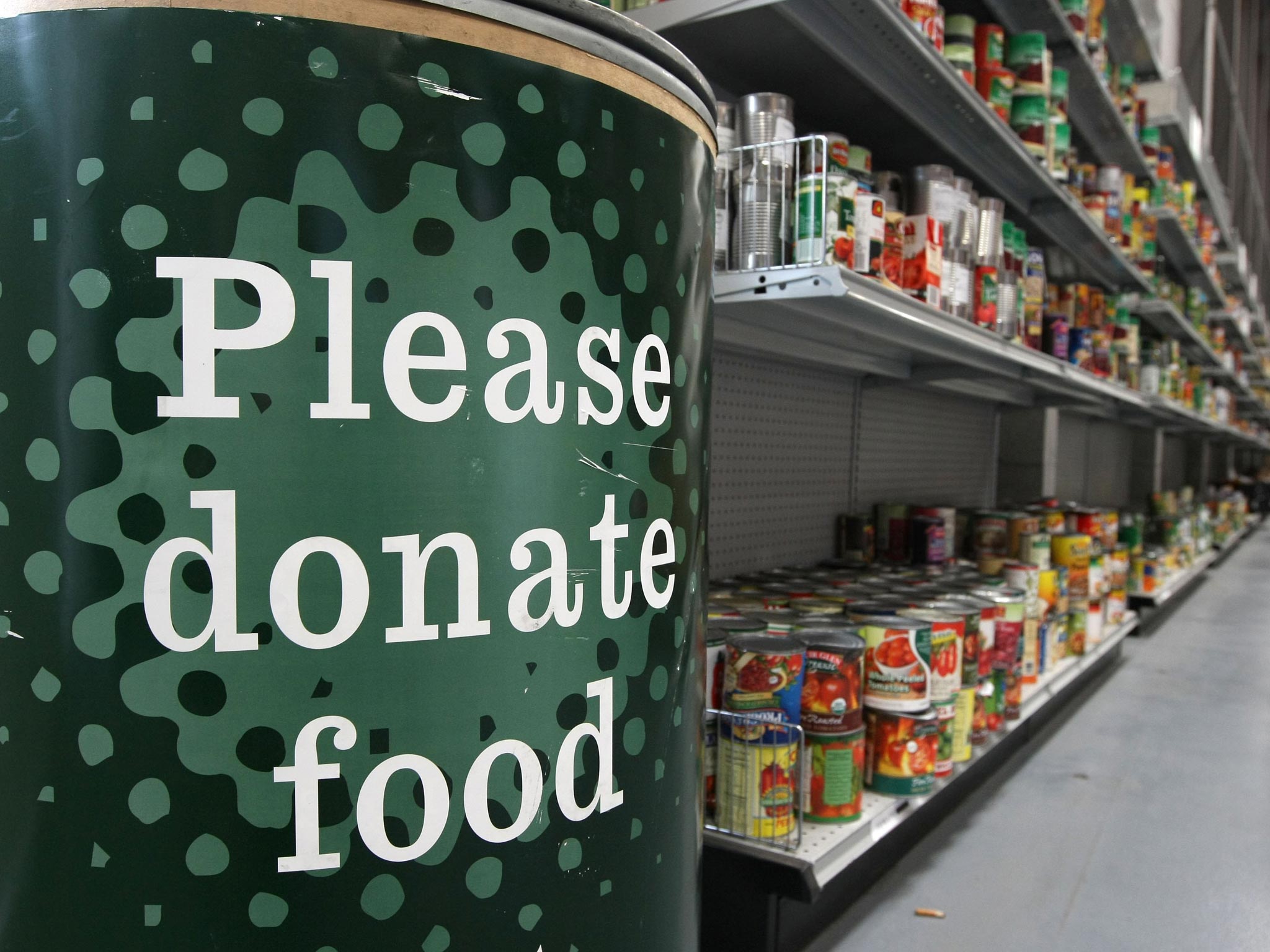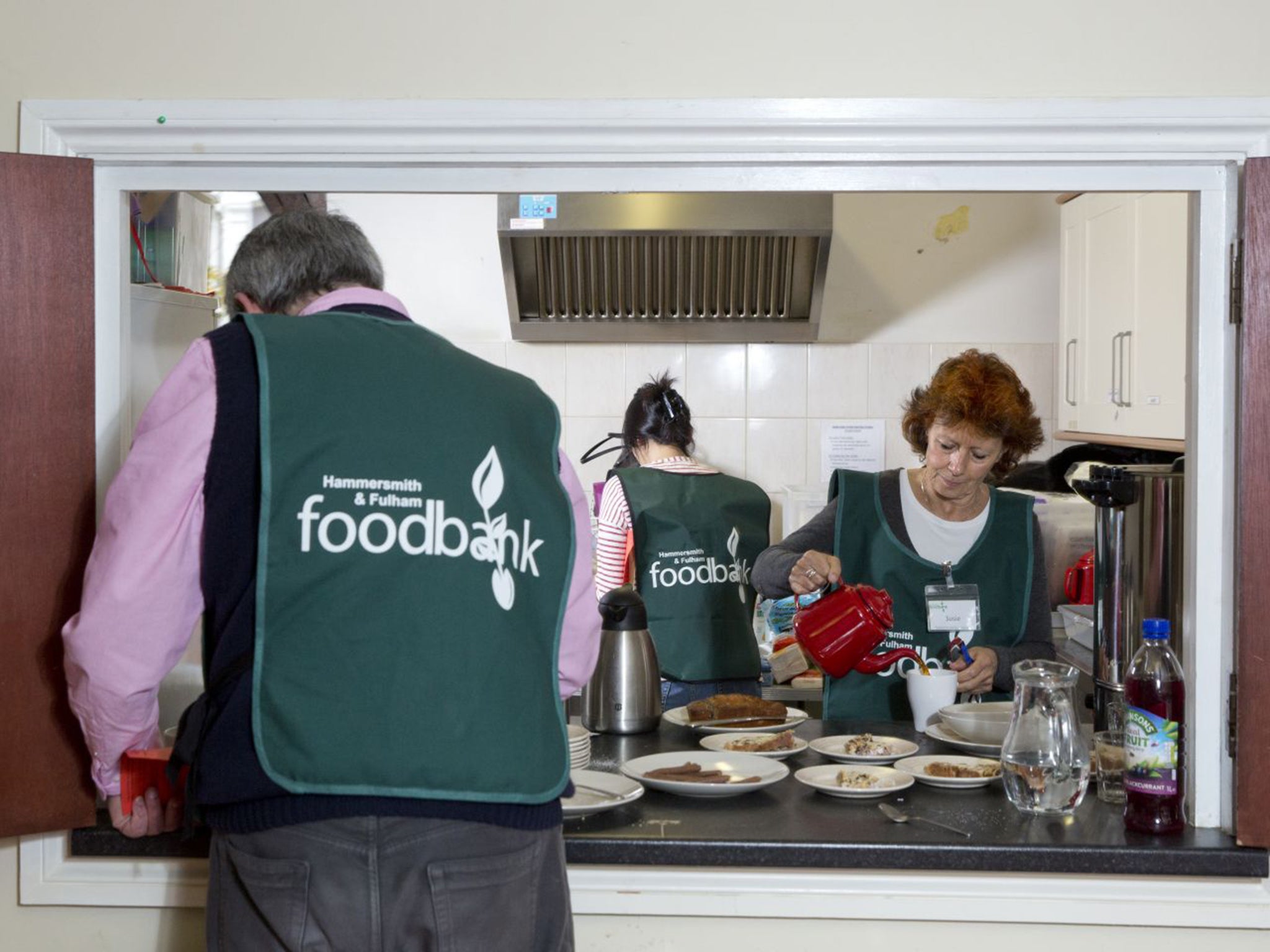Britain's 'shameful' inequality: Figures reveal richest spend more on cigarettes and alcohol in a week than poorest do on electricity
The Equality Trust: 'We're one of the most unequal countries outside the developing world, and frankly it should shame us'

Your support helps us to tell the story
From reproductive rights to climate change to Big Tech, The Independent is on the ground when the story is developing. Whether it's investigating the financials of Elon Musk's pro-Trump PAC or producing our latest documentary, 'The A Word', which shines a light on the American women fighting for reproductive rights, we know how important it is to parse out the facts from the messaging.
At such a critical moment in US history, we need reporters on the ground. Your donation allows us to keep sending journalists to speak to both sides of the story.
The Independent is trusted by Americans across the entire political spectrum. And unlike many other quality news outlets, we choose not to lock Americans out of our reporting and analysis with paywalls. We believe quality journalism should be available to everyone, paid for by those who can afford it.
Your support makes all the difference.Charities have urged politicians to address Britain’s “shameful” inequality after figures published this week show that the country’s richest 10 per cent spend as much on alcohol and cigarettes in a week as the poorest spend on gas and electricity.
The stark disparity was revealed in the annual Family Spending Review for 2014, published by the Office of National Statistics.
While the average weekly household spend was found to be £531.30, there was great variation of this amount between the highest and lowest earning 10 per cent - £1,143.40 and £188.50 per week respectively.
More telling were statistics which showed that the richest 10 per cent spent as much on buying cigarettes and alcohol in a week as the poorest 10 per cent did on their gas and electricity bills in seven days - £18.70.
The richest 10 per cent of households spent more per week on furniture - £43.40 - than the poorest spent on food - £30.40.
And the highest-earning 10 per cent also spent more on wine per week - £8.70, compared to the amount the lowest earners spent on their water bills - £6.90.
Duncan Exley, director of the Equality Trust, condemned the figures as an indictment on politicians’ inability to grasp how unequal Britain has become.
He told The Independent: “When you look at what the poorest are spending their money on, it’s really the bare essentials. Compare that with the richest and you see just how grotesquely unequal our country has become.
“In fact, the richest 10 per cent now spends more on furniture than the poorest do on feeding their families.
“We're one of the most unequal countries outside of the developing world, and frankly it should shame us."

“When a tiny number of people are rich beyond the dreams of avarice, and millions more are struggling to put food on the table and a roof over their head, it's clear we've lost our way,” Mr Exley continued.
“It's not only the poorest who are affected. The rungs on the ladder have grown further and further apart, making it harder for all ordinary people to get on.
“Most people want to think they'll have a bit put away for a dignified retirement, and something to pass on to their kids, perhaps a hand getting their own home.
“But that's becoming harder and harder for most, with the young being condemned to a worse set of circumstances in which to live, work and raise a family.
“All evidence shows that a more equal society is one where your kids are safer and better educated, and where families and communities are healthier.
“We just need politicians to grasp this and act to bridge the gap between the super-rich and the rest of us.”
Adrian Curtis, director of UK food banks at The Trussell Trust, echoed the need for politicians to really try to understand the situations of those on very tight budgets.
Speaking to The Independent, he said the rise of food banks and the numbers using them has highlighted the increasingly desperate situations of those on low incomes.
“It’s going to take everybody to take their part. Policy makers and politicians from all different parties need to look at the reality of life for people living on very low incomes who have to choose between heating the house or eating breakfast,” he said.
According to Mr Curtis, those who visit food banks do not believe their lives are properly understood in this way by politicians - elected to represent their views, but with circumstances vastly different to their own.
“We have people pouring their heart out in tears to us as they feel they are being listened to,” he added.
Mr Curtis said the number of food banks and people using them had “increased dramatically” in the last decade and “there’s no indication that numbers are going to significantly drop”.
“For those on low incomes who have very tight budgets from week to week and month to month, it only takes something to go wrong – an unexpected bill arrives or an income change,” he said.
“The reality for many people living on very tight budgets, without significant savings, is every pound counts and makes a difference.”
Last month, former Conservative Prime Minister John Major said the fact that Britain has grown in wealth but life is still very tough for some had to be acknowledged.
“Even in areas that are recognised as wealthy there are families or individuals who have fallen behind,” he said.
“Policymakers must understand how hard it is to escape from such circumstances. It is not inertia that keeps the unemployed immobile: it is simply that, without help, they are trapped.”
Join our commenting forum
Join thought-provoking conversations, follow other Independent readers and see their replies
Comments